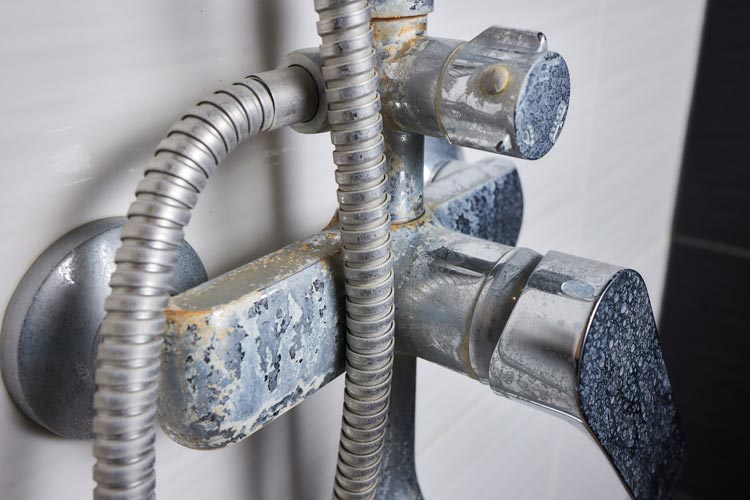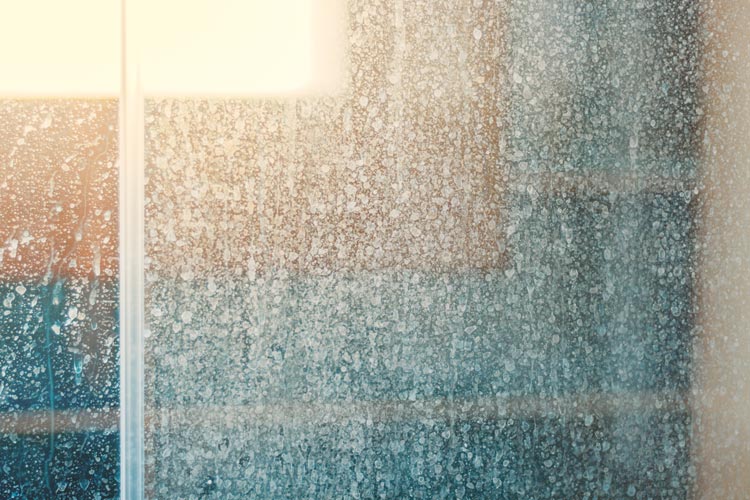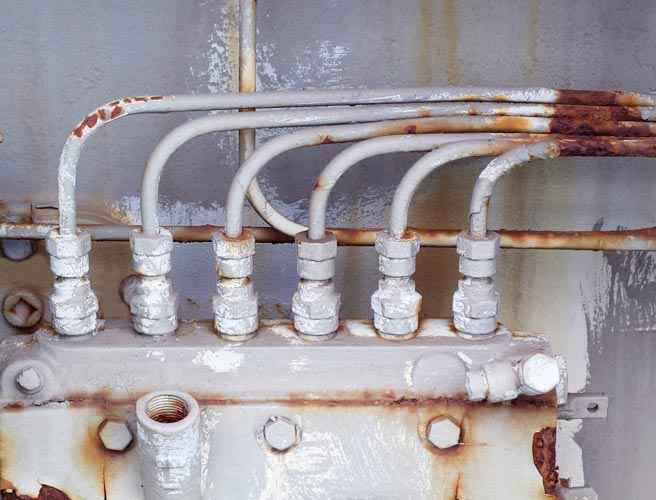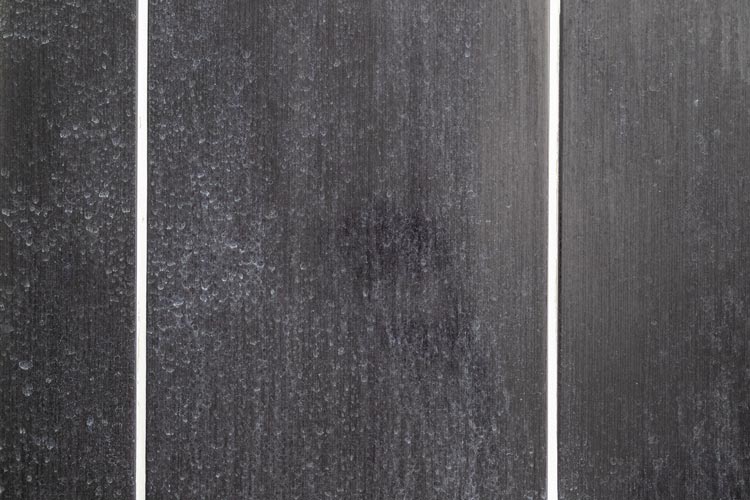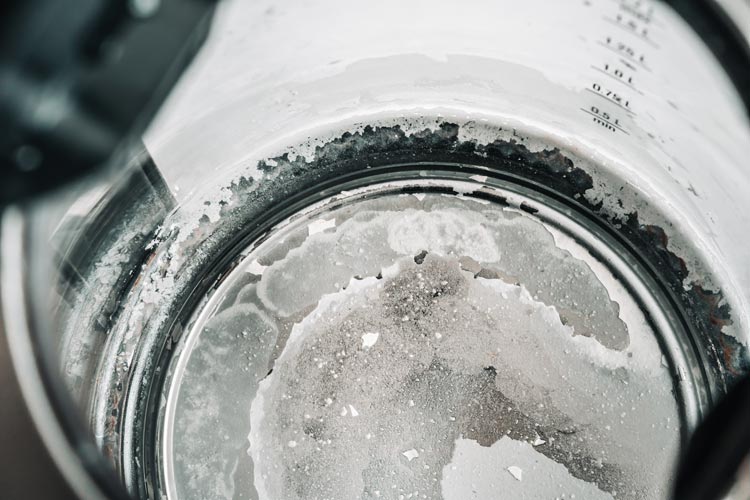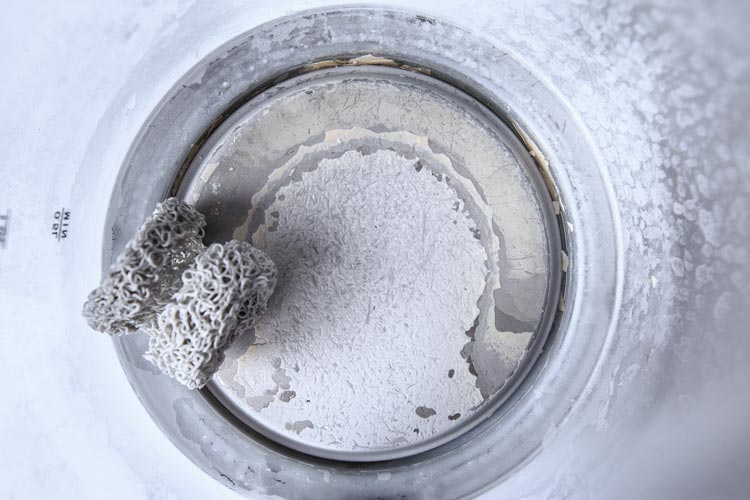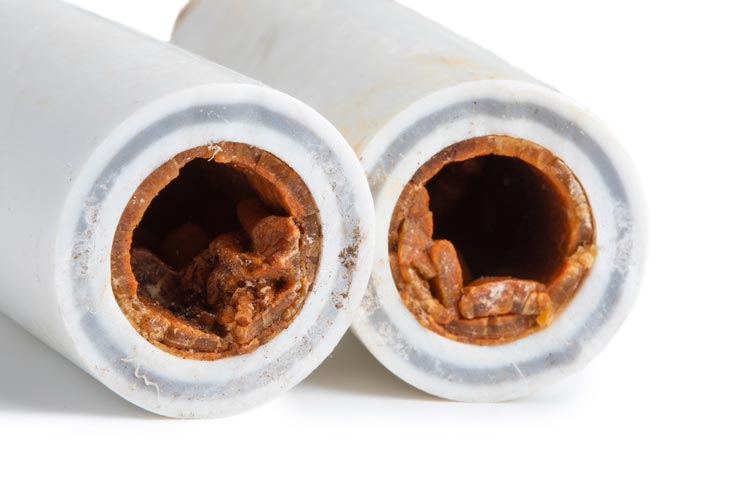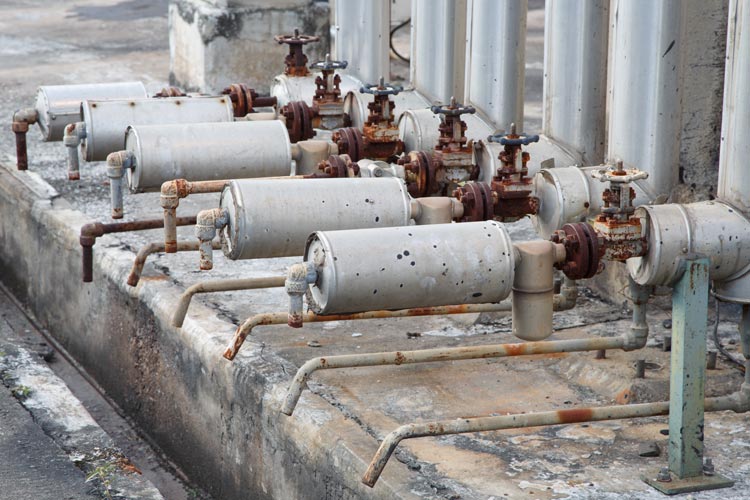Limescale increases fuel consumption. Preventing it conserves power, enabling compliance with Building Regulations part L in the UK.
The hidden costs of hard water
WHY TREAT WATER
Why is hard water
a problem?
Hard water is water that has high calcium and magnesium content. It’s formed when water percolates through deposits of limestone, chalk or gypsum which are largely made up of calcium and magnesium carbonates, bicarbonates and sulfates. When hard water increases in temperature or pH level, those dissolved minerals, such as calcium bicarbonate, revert to their solid carbonate state: calcium carbonate. The calcium carbonate forms calcite crystals which adhere together and form solid scale deposits in pipes, pumps, appliances and machinery – increasing energy consumption, running costs and maintenance.
ENERGY EFFICIENCY
Compliance with Building Regulations Part L in the UK
The Domestic Compliance Heating Guide covers the conservation of fuel and power in the building of new homes to achieve required energy efficiency, and similar regulations are being rolled out globally – are you prepared?
Many countries are adopting new regulations to help reduce Co2 emissions. One area many countries have or will target in the future is limescale deposits on hot water systems. Installing a Fluid Dynamics conditioner will enable compliance with existing regulations or ensure that your installation is futureproofed against any impending regulations.
COUNTING THE COST OF LIMESCALE
How limescale impacts
homes & businesses
Limescale deposits act as an insulator, increasing energy usage & consumption
A boiler using untreated hard water could be consuming as much as 20-30% more energy
Every mm of limescale increases the energy consumption of water-using appliances and equipment by 7%
£Billions are wasted each year in increased energy costs and maintenance due to limescale
Our conditioners add and remove nothing from water
Unlike water softening our conditioners do not remove healthy calcium and magnesium minerals from the water – water softeners do, in exchange for salt
Hard water can irritate sensitive skin – many users of our conditioners have claimed a reduction in long terms skin conditions such as eczema
Limescale deposits provide a breeding ground for harmful contaminants and bacteria, in particular legionella
Untreated calcium also acts as a catalyst for algae growth
Limescale damages pipework and equipment, resulting in increased maintenance costs and shorter lifetimes
Scaled shower head
Heating coils – can cause burnt out coils
Scaled pipes
Toilets/urinals
Taps/faucets
Washing machines
Dishwashers
Water heaters
Coffee machines
Ice makers
Drinking fountains
Hot & cold water supply pipes
Air conditioner systems
Humidifiers
Boilers
Condensers
Dual pass heat exchanger (found in boilers)
Cooling towers
Limescale leaves unsightly deposits on surfaces, making them appear dirty and dull
Limescale deposits result in dirty-looking taps, shower heads, screens and kettles
Limescale from hard water can contribute to dull hair and skin
Limescale can present as watermarked or spotty glassware and cutlery – even when clean
Limescale deposits can also promote corrosion
Limescale increases energy bills, maintenance and replacement costs
Limescale build-up can cause machinery and equipment to breakdown, increasing downtime and opportunity costs
Limescale in water-using appliances increases their energy consumption – 1mm of limescale equates to a 7% energy increase
Limescale in boilers, washing machines and other appliances reduces their lifespan, increasing the frequency of replacement costs
Limescale build-up can increase the energy consumption of water-using appliances by up to 20%
The damage caused by limescale
IMPACT
The water conditioning
revolution is here
The benefits of reducing limescale are far reaching and clear – encompassing financial, environmental and physiological. Many benefits are already publicised & widely known – driven & endorsed by organisations like the WHO (World Health Organisation), The Carbon Trust, The Health & Safety Executive, British Water and the USGSA.
Limescale is a common global challenge that hasn’t gone unnoticed and is now rightly entering the climate change debate.
GLOBAL CONSENSUS
What the experts are saying
1 mm layer of limescale will cause a 7% increase in energy input to the boiler to meet the same heat demand
”Extract from Carbon Trust low temperature Hot Water Boilers (CTV008)
According to British Water, heating elements coated in just 1.6mm of limescale will decrease efficiency by 12% and 3mm, a drop of 25%.
Mineral Benefits
”Awareness of the importance of minerals and other beneficial constituents in drinking water has existed for thousands years, being mentioned in the Vedas of ancient India. Today, sufficient evidence is now available to confirm the health consequences from drinking water deficient in calcium or magnesium
CVD
”On balance, the hypothesis that consumption of hard water is associated with a somewhat lowered risk of CVD was probably valid, and that magnesium was the more likely contributor of those benefits
Home guidance
”Information should be provided on methods of application of home water softening devices so that consumers can also have access to mineralized water for drinking and cooking
Health and Safety Executive (UK HSE) notes the importance of reducing the opportunity for scale accumulation, both for system efficiency and to reduce the supply of breeding locations for bacteria, such as legionella.
”HSG 274 part 2 – Legionnaires’ disease part 2: the control of legionella bacteria in hot and cold water systems, HSE 2014
Save money, time,
and the planet
100% green & chemical-free – nothing added, nothing removed
Scientifically proven technology
Quick & easy installation
Zero maintenance – fit it & forget it
Removes up to 100% of limescale
Reduces energy costs
15-year ‘pro-rata’ warranty & up to 20-year lifespan
Precision engineered & manufactured in Britain
Water retains healthy minerals
Prolongs the lifespan of water-using equipment such boilers
Let’s find your
ideal solution
Get in touch and find out how we can help you


